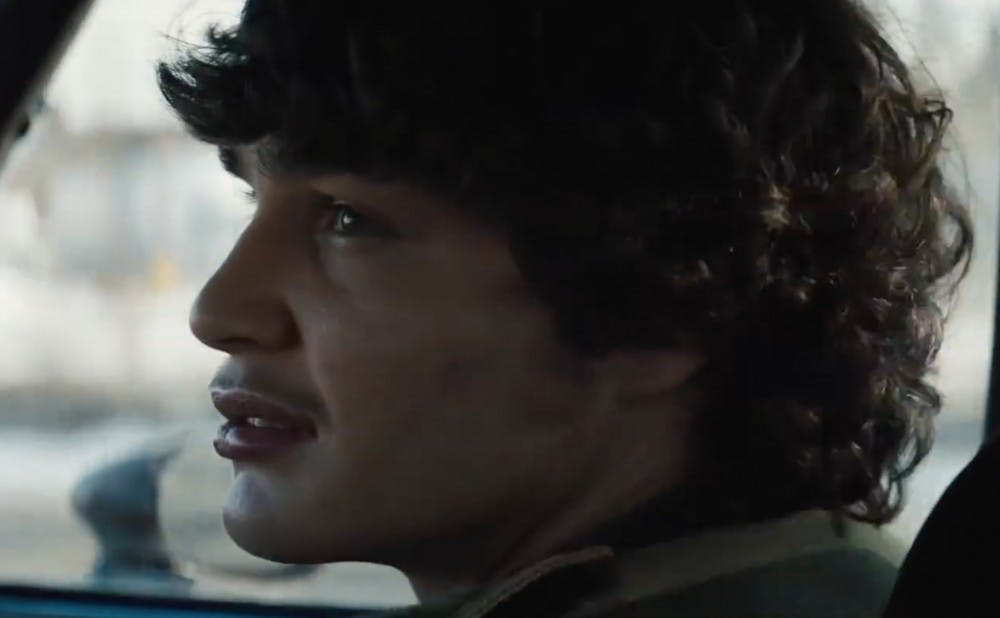The year: 1984. The place: Detroit, Michigan. As far a movie scenarios go, this is a director’s dream: At the time, few cities in America had more crime than Detroit. But if this was known to be the case, why did so many people choose to stay and make a living there? This is the big dilemma that Richard Wershe Jr. (Richie Merritt) faces as we are introduced to him and his father, Richard Wershe Sr. (Matthew McConaughey) in “White Boy Rick,” which follows Wershe Jr. as he becomes the youngest undercover informant for the FBI ever at the age of 14. After a local gun show, Wershe Jr. asks his father why they continue to live and try to make a living in such a bad place, to which Wershe Sr. replies, “Because a lion never leaves the Serengeti, son.” Most of the film follows Wershe Jr. as he figures out whether to embrace or reject this idea that one is entitled to make a living in the dangerous climate that is 1980s Detroit.
The first act of “White Boy Rick” explores this conflict well and is really what the audience comes to see. Wershe Jr. initially embraces this ideology of making a living in Detroit and begins selling guns like his father. It’s through these sales that he is introduced to and befriends the Currys, one of the local African American gangs. As the lone white kid who is accepted by this organization, Wershe Jr. earns the titular nickname “White Boy Rick.” Shortly after his acceptance into the Curry gang, Rick becomes involved with the FBI as they promise him small amounts of money and his father’s immunity for illegal gun sales in exchange for his cooperation. As the FBI asks Rick to do more and more for them, he becomes more and more accepted by the Curry gang and the stakes get higher and higher. The climax of the film completely changes Rick and his role to his family and community.
Although the film’s plot is fascinating, it seems to focus on the wrong parts of Rick’s life. As an informant film that promised government-sponsored shenanigans and an A-list actor in McConaughey, there was a great deal of excitement surrounding “White Boy Rick”’s release. The true story of the youngest FBI informant of all time is an amazing tale and, had it been explored fully, this film would have been up there with great informant films like “American Made” and “American Hustle.”
However, therein lies the issue: The conflict is never fully explored. There are a couple instances in this movie where Rick goes to make a sting, but instead of following the action and embracing the suspense of the situation, the film simply cuts to the aftermath, leaving the audience to wonder how the events played out. It misses a lot of opportunities by electing to forgo action and suspense for Rick’s personal drama.
While the film didn’t quite live up to its potential in some areas, it exceeded expectations in others. Matthew McConaughey gives another inspired performance in the supporting role of Richard Wershe, Sr. In the way only he can, McConaughey makes his character relatable to everyone as he fights the changes in his business and family and masterfully justifies every poor decision made by his character Wershe Sr. In addition to McConaughey, Richie Merritt delivers a powerful, breakout performance in this film. Not only does he effectively take on the gangster persona of Rick Wershe Jr., but he effectively demonstrates Rick’s struggle with his father through posture and facial cues. In addition to the powerful performances, the cinematography in this film is breathtaking. Tat Radcliffe, best known for his work on the historical thriller “ ’71”, beautifully captures the landscape of 1980’s Detroit. In a lot of ways, it adds a sense of irony to the film as the place that is being described as bad and ugly can be depicted in such a beautiful way.
Ultimately, while the film’s plot doesn’t quite reach its potential, it is saved through the performances of Merritt and McConaughey and the filmography of Radcliffe. “White Boy Rick” serves as an acceptable telling of Richard Wershe Jr.’s life but misses the mark of being a truly great film.
Get The Chronicle straight to your inbox
Signup for our weekly newsletter. Cancel at any time.

